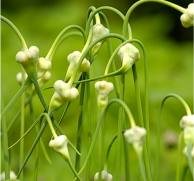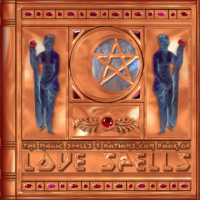Garlic
The Garlic (Allium sativum), Skorodon of the Greeks, which was first cultivated in English gardens in 1540, takes its name, from gar, a spear; and leac, a plant, either because of its sharp tapering leaves, or perhaps as "the war plant," by reason of its nutritive and stimulating qualities for those who do battle.
Added Jul 20, 2010
| 5,978 Reads
It is known also to many as "Poor-man's Treacle," or "Churls Treacle," from being regarded by rustics as a treacle, or antidote to the bite of any venomous reptile. The bulb, consisting of several combined cloves, is stimulating, antispasmodic, expectorant, and diuretic. Its active properties depend on an essential oil which may be readily obtained by distillation. A medicinal tincture is made with spirit of wine, of which from ten to twenty drops may be taken in water several times a day. Garlic proves useful in asthma, whooping-cough, and other spasmodic affections of the chest. For all adult, one or more cloves may be eaten at a time. The odour of the bulb is very diffusible, even when it is applied to the soles of the feet its odour is exhaled by the lungs. When bruised and mixed with lard, it makes a most useful opbdeldoc to be rubbed in for irritable spines of indolent scrofulous tumours or gout, until the skin surface becomes red and glowing. If employed thus over the chest (back and front) of a child with whooping-cough, it proves eminently helpful. Raw Garlic, when applied to the skin, reddens it, and the odour sniffed into the nostrils will revive an hysterical sufferer. It formed the principal ingredient in the "Four thieves' vinegar," which was adopted so successfully at Marseilles for protection against the plague, when prevailing there. This originated with four thieves, who confessed that, whilst protected by the liberal use of aromatic vinegar during the plague, they plundered the dead bodies of its victims with complete security. Or, according to another explanation of the name, an old tract, printed in 1749, testifies that one, Richard Forthave, who lived in Bishopsgate Street, invented and sold a vinegar which had such a run that he soon grew famous, and that his surname became thus corrupted in the course of time. But long before the plague at Marseilles (1722) vinegar was employed as a disinfectant. With Cardinal Wolsey it was a constant custom to carry in his hand an orange emptied of its pulp, and containing a sponge soaked in vinegar made aromatic with spices, so as to protect himself from infection when passing through the crowds which his splendour and his office attracted. It is related that during a former outbreak of infectious fever in Somer's Town and St. Giles's, the French priests, who constantly used Garlic in all their dishes, visited the worst cases in the dirtiest hovels with impunity, while the English clergy, who were similarly engaged, but who did not eat onions in like fashion, caught the infection in many instances, and fell victims to the disease. For toothache and earache, a clove of Garlic stripped of its skin, and cut in the form of a suppository, if thrust in the ear of the aching side, will soon assuage the pain. If introduced into the lower bowel, it will help to destroy thread worms, and when swallowed it abolishes round worms. As a condiment, Garlic undoubtedly aids digestion by stimulating the circulation, with a consequent increase of saliva and gastric juice. The juice from the bulbs can be employed for cementing broken glass or china, by means of its mucilage. Dr. Bowles, a noted English physician of former times, made use of Garlic with much success as a secret remedy for asthma. He concocted a preserve from the boiled cloves with vinegar and sugar, to be kept in an earthen jar. The dose was a bulb or two with some of the syrup, each morning when fasting. [217] The pain of rheumatic parts may be much relieved by simply rubbing them with cut Garlic. Garlic emits the most acrimonious smell of all the onion tribe. When leprosy prevailed in this country, Garlic was a prime specific for its relief, and as the victims had to "pil," or peel their own garlic, they were nicknamed "Pil Garlics," and hence it came about that anyone shunned like a leper had this epithet applied to him. Stow says, concerning a man growing old: "He will soon be a peeled garlic like myself." The strong penetrating odour and taste of this plant, though offensive to most English palates, are much relished by Russians, Poles, and Spaniards, and especially by the Jews. But the Greeks detested Garlic. It is true the Attic husbandmen ate it from remote times, probably in part to drive away by its odour venomous creatures from assailing them; but persons who partook of it were not allowed to enter the temples of Cybele, says Athenaeus; and so hated was garlic, that to have to eat it was a punishment for those that had committed the most horrid crimes; Horace, among the Romans, was made ill by eating garlic at the table of Maecenas; and afterwards (in his third Epode) he reviled the plant as, Cicutis allium nocentius, "Garlic more poisonous than hemlock." Sir Theodore Martin has thus spiritedly translated the passage:— "If his old father's throat any impious sinner, The singular property is attributed to Garlic, that if a morsel of the bulb is chewed by a man running a race, it will prevent his competitors from getting ahead of him. Hungarian jockeys sometimes fasten a clove of [218] garlic to the bits of their racers; and it is said that the horses which run against those thus baited, fall back the moment they smell the offensive odour. If a leg of mutton, before being roasted, has a small clove of Garlic inserted into the knuckle, and the joint is afterwards served with haricot beans (soaked for twenty-four hours before being boiled), it is rendered doubly delicious. In Greece snails dressed with Garlic are now a favourite dish. A well known chef is said to have chewed a small clove of Garlic when he wished to impart its delicate flavour to a choice plât, over which he then breathed lightly. Dumas relates that the whole atmosphere of Provence is impregnated with the perfume of Garlic, and is exceedingly wholesome to inhale. As an instance of lunar influences (which undoubtedly affect our bodily welfare), it is remarkable that if Garlic is planted when the moon is in the full, the bulb will be round like an onion, instead of being composed, as it usually is, of several distinct cloves. Homer says it was to the virtues of the Yellow Garlic (Moly?) Ulysses owed his escape from being changed by Circe into a pig, like each of his companions. The Crow Garlic, vineale, and the purple striped, oleraceum, grow wild in this country. When the former of these is eaten by birds it so stupefies them that they may be taken with the hand. Concerning the cure of nervous headache by Garlic (and its kindred medicinal herb Asafoetida), an old charm reads thus:— "Give onyons to Saynt Cutlake,
Added Jul 20, 2010
| 5,978 Reads
Share The Magic ...
The GoE MONEY!!! Course - A Course In Real MONEY MAGIC!
|





















